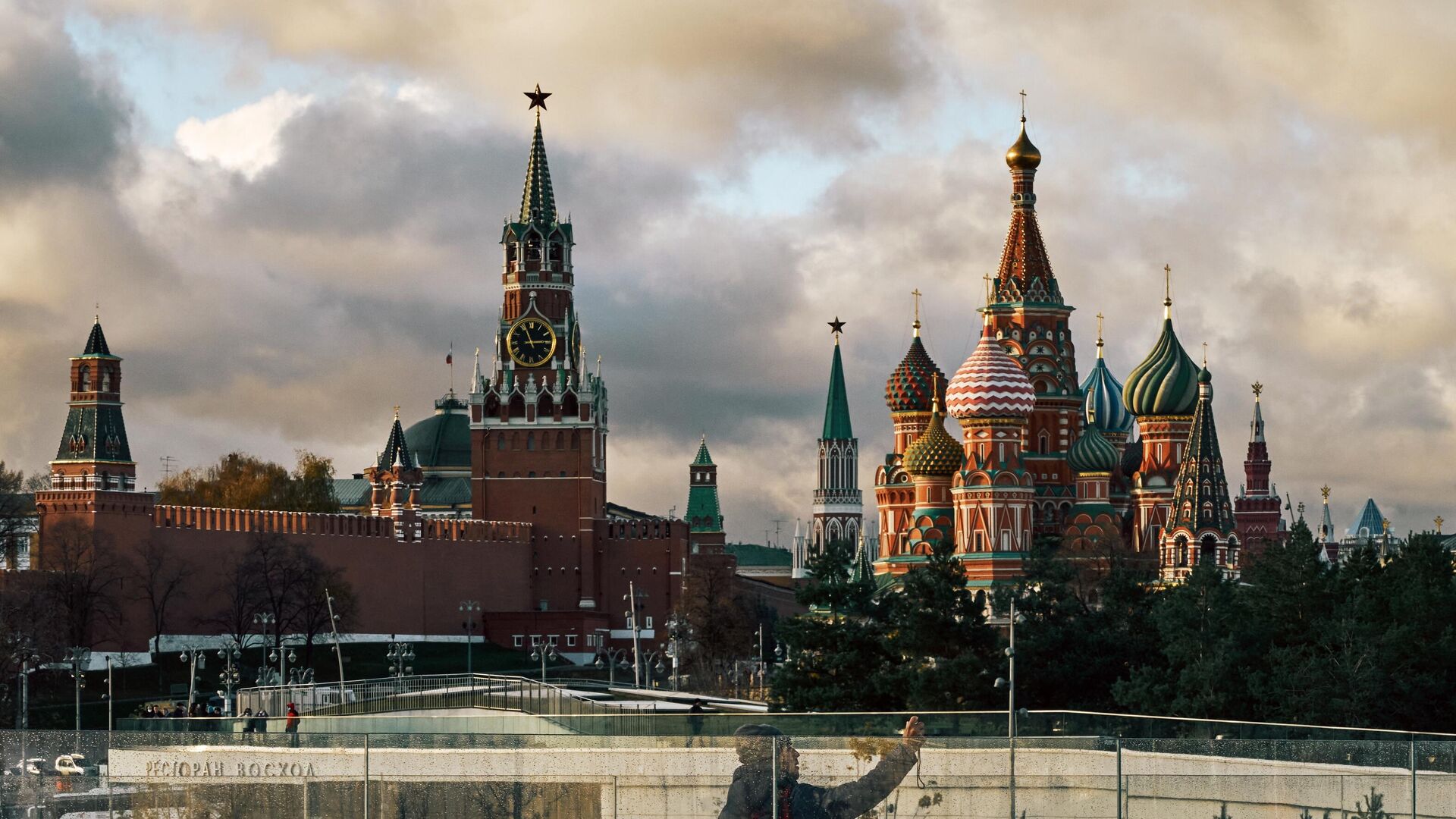https://sputnikglobe.com/20220316/kremlin-ukraines-conversion-into-demilitarised-country-like-austria-can-be-seen-as-a-compromise-1093922795.html
Kremlin: Ukraine's Conversion Into Demilitarised Country Like Austria Can Be Seen as a Compromise
Kremlin: Ukraine's Conversion Into Demilitarised Country Like Austria Can Be Seen as a Compromise
Sputnik International
Earlier, the head of the Russian delegation at talks with Ukraine, presidential aide Vladimir Medinsky, said that Kiev had expressed readiness to demilitarise... 16.03.2022, Sputnik International
2022-03-16T10:15+0000
2022-03-16T10:15+0000
2022-03-16T11:59+0000
russia
ukraine
sweden
austria
https://cdn1.img.sputnikglobe.com/img/07e6/01/18/1092482761_0:0:3148:1771_1920x0_80_0_0_696497238ae2d2b0a24c372da112c41e.jpg
Ukraine's conversion into a demilitarised country, like Austria or Sweden, with its own army, can be regarded as a compromise, said Kremlin spokesman Dmitry Peskov on Wednesday.At Russia's negotiations with Ukraine, according to presidential aide Vladimir Medinsky, Kiev earlier expressed willingness to demilitarise, while retaining its own armed forces, following the example of Sweden or Austria.When asked on Wednesday whether Russia would link the signing of the final document with Ukraine to a lifting of Western sanctions, the Kremlin spokesman confirmed that the agenda of the talks between Moscow and Kiev included the sanctions issue. Since Russia launched its operation to "demilitarise and de-Nazify" Ukraine on 24 February, responding to calls for help from the Donetsk and Lugansk People’s Republics, which it earlier recognised, it has been slapped with sanctions. The Russian government has repeatedly stated that the goal of the current operation was to neutralise Ukraine's military capacity while not harming the civilian population of the country. Not all countries have jumped on the bandwagon of punishing sanctions targeting Russia, yet Washington's pressure on other states these days has been unprecedented, added Dmitry Peskov.Peskov was asked to weigh in on the Russian foreign ministry's announcement on Tuesday that Moscow was responding to US sanctions targeting Russian officials and prominent figures by envisioning restrictions against top US officials, including President Joe Biden, Secretary of State Anthony Blinken, and others.Russia's decision to introduce such sanctions does not mean the renunciation of contacts at the top level, stated the spokesman.The list of persons against whom Russia imposed sanctions was agreed with Russian President Vladimir Putin, he added.
https://sputnikglobe.com/20220315/zelensky-comes-around-to-security-demands-as-russia-closes-in-1093878368.html
ukraine
sweden
austria
Sputnik International
feedback@sputniknews.com
+74956456601
MIA „Rossiya Segodnya“
2022
News
en_EN
Sputnik International
feedback@sputniknews.com
+74956456601
MIA „Rossiya Segodnya“
Sputnik International
feedback@sputniknews.com
+74956456601
MIA „Rossiya Segodnya“
ukraine, sweden, austria
Kremlin: Ukraine's Conversion Into Demilitarised Country Like Austria Can Be Seen as a Compromise
10:15 GMT 16.03.2022 (Updated: 11:59 GMT 16.03.2022) Earlier, the head of the Russian delegation at talks with Ukraine, presidential aide Vladimir Medinsky, said that Kiev had expressed readiness to demilitarise, but said that wants to keep its own armed forces, like Sweden or Austria.
Ukraine's conversion into a
demilitarised country, like Austria or Sweden, with its own army, can be regarded as a compromise, said Kremlin spokesman Dmitry Peskov on Wednesday.
"This is the option that is really being discussed now and which can be seen as a real compromise," Peskov told reporters.
At Russia's negotiations with Ukraine, according to presidential aide Vladimir Medinsky, Kiev earlier expressed willingness to demilitarise, while retaining its own armed forces, following the example of Sweden or Austria.
When asked on Wednesday whether Russia would link the signing of the final document with Ukraine to a lifting of Western
sanctions, the Kremlin spokesman confirmed that the agenda of the talks between Moscow and Kiev included the sanctions issue.
"I will not comment [on it]. Indeed, the topic of sanctions is touched upon at these negotiations. But I would not like to give any details now," Peskov told reporters.
Since Russia launched its operation to "demilitarise and de-Nazify" Ukraine on 24 February, responding to calls for help from the Donetsk and Lugansk People’s Republics, which it earlier recognised, it has been slapped with sanctions. The Russian government has repeatedly stated that the goal of the current operation was to neutralise Ukraine's military capacity while not harming the civilian population of the country.
Not all countries have jumped on the bandwagon of punishing sanctions targeting Russia, yet Washington's pressure on other states these days has been unprecedented, added Dmitry Peskov.
"The United States is exerting unprecedented pressure on many countries of the world these days. The vast majority of countries bend under this pressure, but there are also countries that do not bend and take their sovereign position, more balanced. And they openly declare that they consider any pressure on themselves unacceptable," Peskov told reporters.
Peskov was asked to weigh in on the Russian foreign ministry's announcement on Tuesday that Moscow was responding to US
sanctions targeting Russian officials and prominent figures by envisioning restrictions against top US officials, including President Joe Biden, Secretary of State Anthony Blinken, and others.
Russia's decision to introduce such sanctions does not mean the renunciation of contacts at the top level, stated the spokesman.
"If necessary, these contacts can be resumed, and the imposition of these sanctions does not mean the rejection of contacts," said Dmitry Peskov.
The list of persons against whom Russia imposed sanctions was agreed with Russian President Vladimir Putin, he added.





